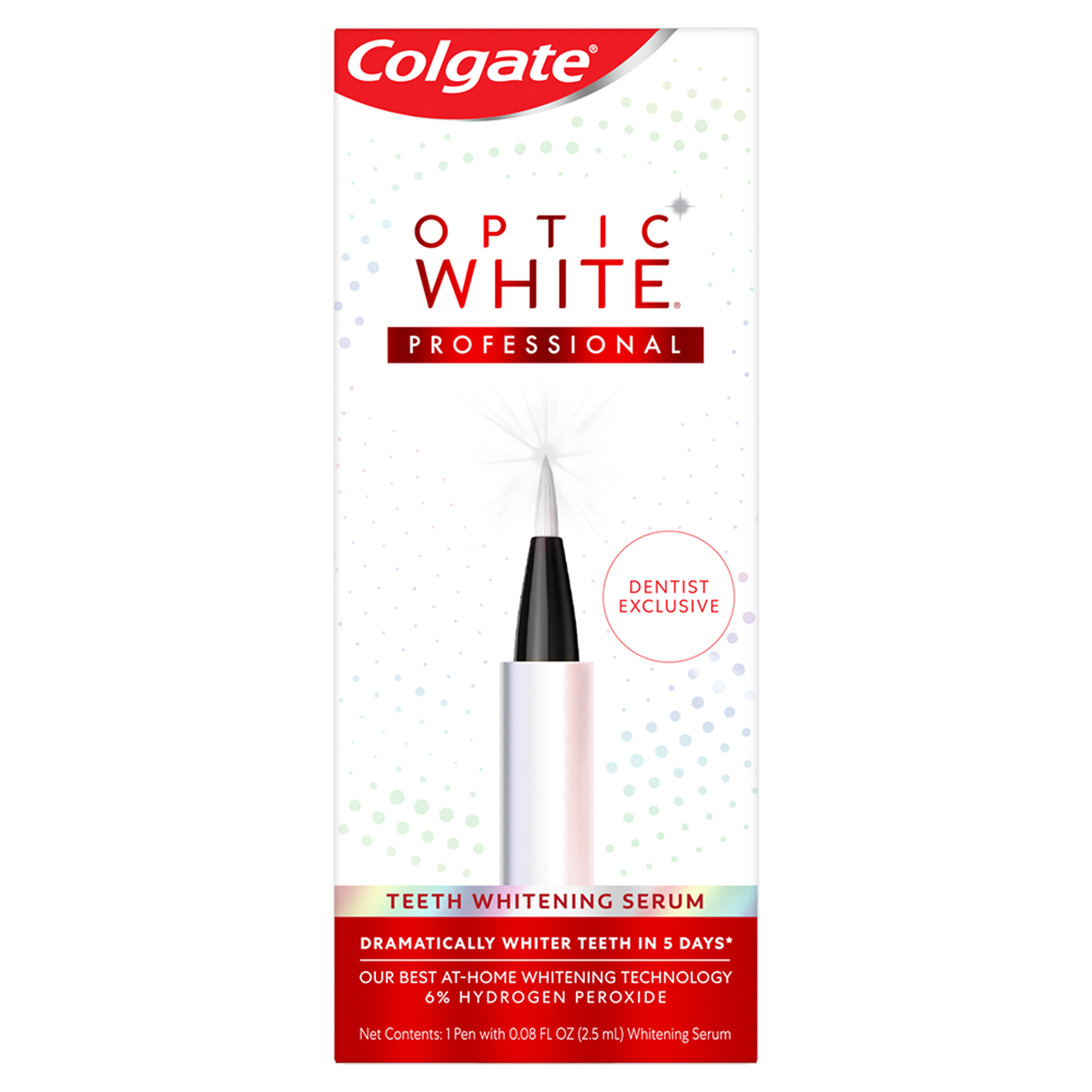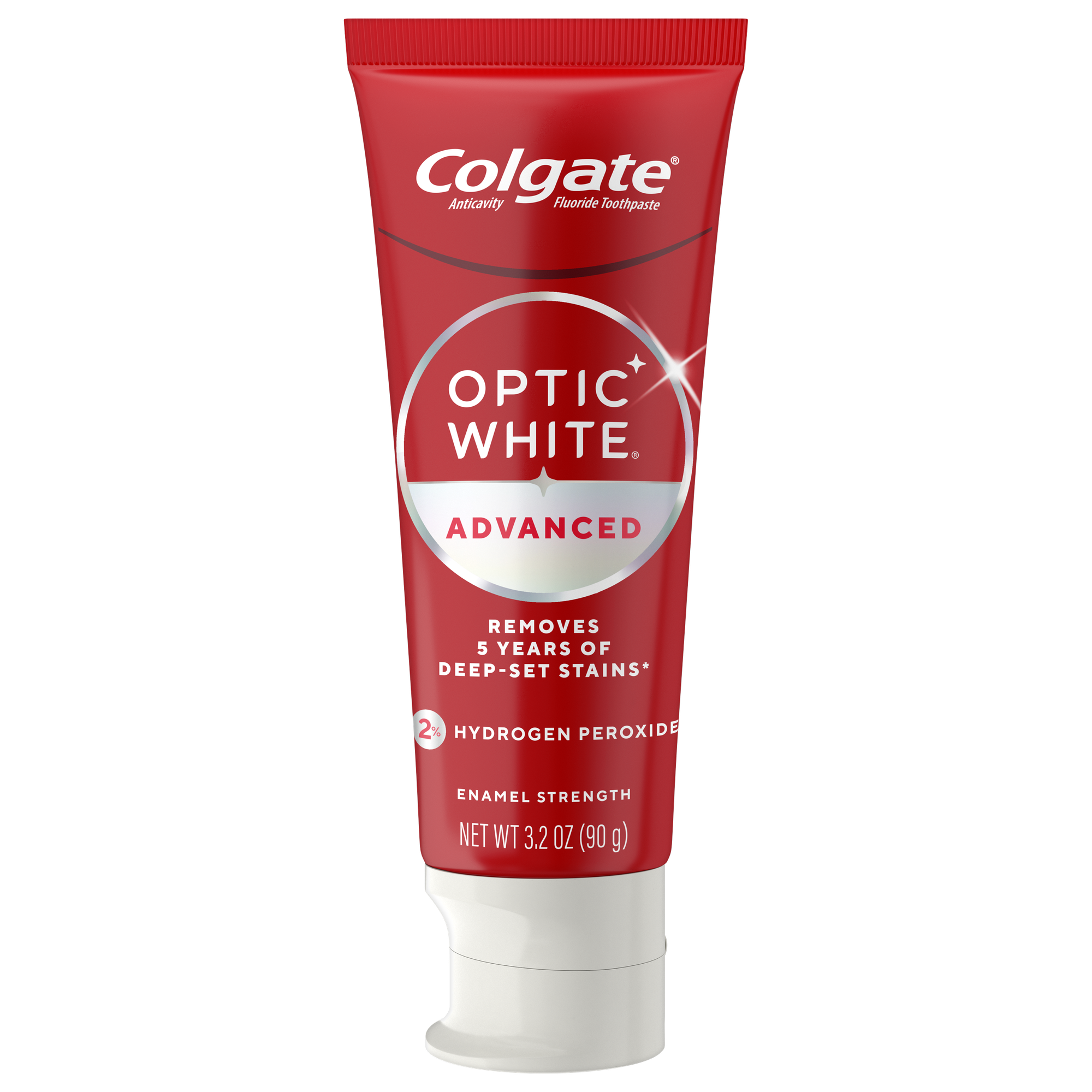How Does Whitening Toothpaste Work?
There are numerous whitening toothpastes available on store shelves, but not all options are the same. There are two basic types that each use different key ingredients. Some are actually surface stain removers: they whiten by gently polishing your teeth. This can remove the discoloration from staining foods and drinks. Other whitening toothpaste types have bleaching ingredients to truly change the color of your teeth.
Bleaching toothpaste typically works faster and has longer-lasting results. However, speak with your dental hygienist or dentist before trying a whitening product. They have been known to cause tooth sensitivity and are not able to whiten veneers, crowns, or other dental devices.
What is in Whitening Toothpaste and How to Choose the Right One
With different types of whitening toothpaste and lots of different brands to choose from, how do you know which toothpaste is best for you? To make this decision, it’s important to first understand what is in whitening toothpastes and what those ingredients do.
The active ingredients in whitening toothpaste can determine how effectively the products whiten your teeth. Usually, whitening toothpaste includes one of these three ingredients:
- Mild abrasives. The Journal of the American Dental Association reports that some whitening toothpastes contain only mild abrasives. These ingredients don't bleach or change your teeth's color; they can only remove surface stains by gently abrading the enamel.
- Hydrogen peroxide. Some whitening toothpastes include hydrogen peroxide, a bleaching agent often used in over-the-counter whitening products and professional treatments. These products change the color of your teeth rather than simply removing surface stains as other products do. The concentration of hydrogen peroxide in whitening toothpaste is lower than in products like whitening pens, gels or strips. However, hydrogen peroxide toothpaste can provide noticeable results over a more extended period of use.
- Carbamide peroxide. Carbamide peroxide is a bleaching agent that breaks down into other compounds like hydrogen peroxide. Carbamide peroxide is also a widespread whitening ingredient that you can find in whitening gels and trays too.

Whitening Toothpaste
Expert-Level Whitening Toothpaste for a Vibrant Glow

Is Whitening Toothpaste Bad For Your Teeth?
When used as directed with the right brushing technique, whitening toothpastes are not bad for your teeth.
Whitening toothpastes that contain abrasives could, in theory, damage your tooth enamel. However, all toothpastes are graded on their abrasiveness using something called the Relative Dentin Abrasivity (RDA) score, and the American Dental Association (ADA) says that any toothpaste with an RDA below 250 is safe. Most whitening toothpastes on the market today are below 200, and so they won’t cause enamel erosion.
There is a small risk of tooth sensitivity when using a whitening toothpaste that contains bleaching agents. If you do experience sensitivity, you can alternate use with regular toothpaste or find a whitening toothpaste for sensitive teeth.
Remember to always follow the instructions on the label and use your toothpaste no more often than directed. And for best results, pair your toothpaste with a soft-bristled toothbrush and use a gentle brushing technique – no hard scrubbing!
Protecting Your Enamel After Whitening
Since surface stain removal toothpaste abrades your enamel, you should try to fortify your enamel after whitening. There are several enamel-strengthening or enamel-protecting toothpaste options. By keeping your enamel healthy, you can prevent surface stains from coming back. You can speak with your dental hygienist for recommendations.
How to Use Whitening Toothpaste
The great thing about whitening toothpaste is that it also provides the benefits of regular toothpaste. Brushing at least twice a day for two minutes each time will reduce your risk of cavities, freshen breath and keep your gums healthy.
Remember that the ADA recommends speaking with your dentist before using a whitening product, especially if you have crowns and fillings. If you already experience tooth sensitivity, your dental professional can recommend the right product for your needs.
This article is intended to promote understanding of and knowledge about general oral health topics. It is not intended to be a substitute for professional advice, diagnosis or treatment. Always seek the advice of your dentist or other qualified healthcare provider with any questions you may have regarding a medical condition or treatment.
ORAL HEALTH QUIZ
What's behind your smile?
Take our Oral Health assessment to get the most from your oral care routine
ORAL HEALTH QUIZ
What's behind your smile?
Take our Oral Health assessment to get the most from your oral care routine














